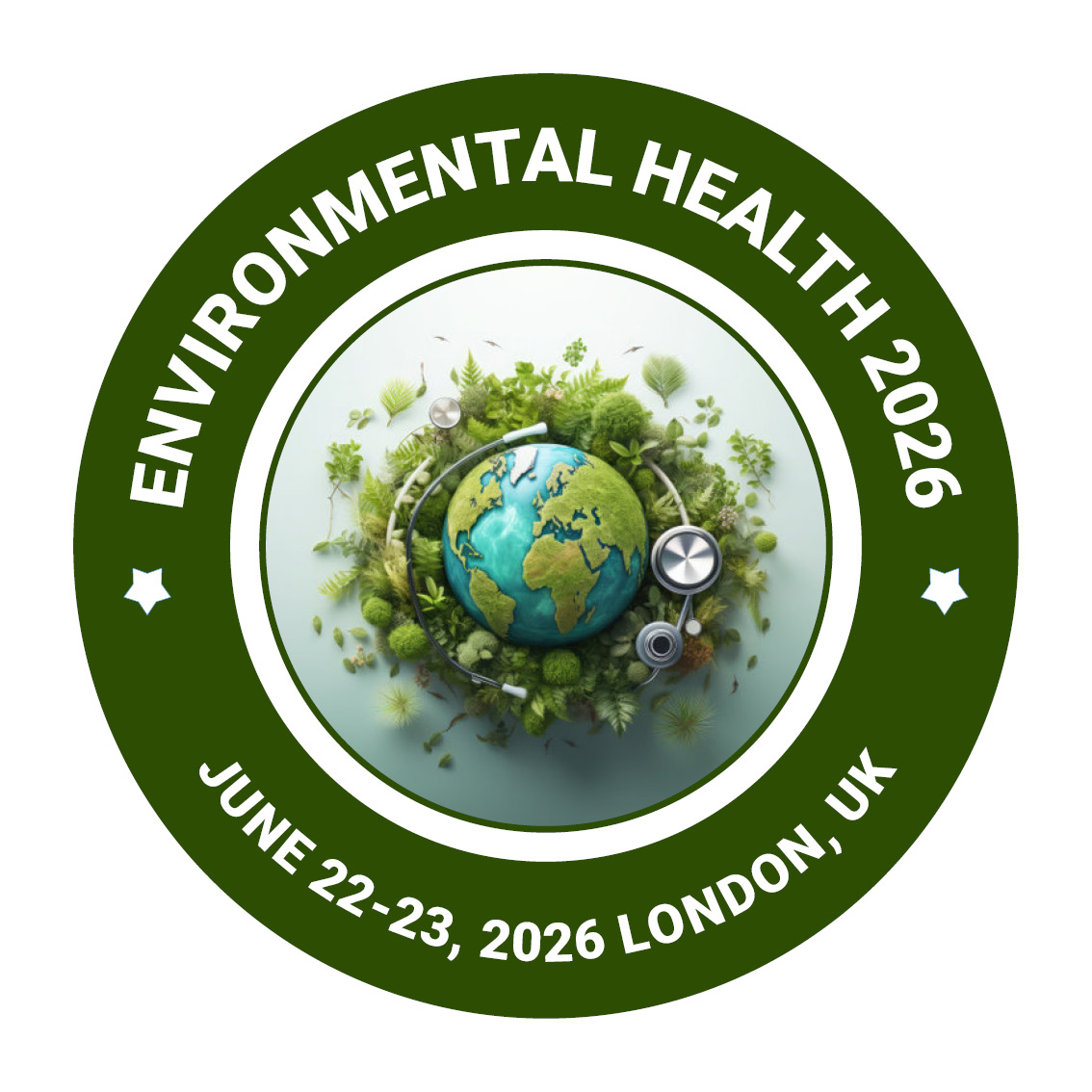Call for Abstract
Scientific Program
8th Global Summit on Environmental Health, will be organized around the theme “Environmental Health in a Changing Climate: Innovations for a Sustainable Future”
ENVIRONMENTAL HEALTH 2026 is comprised of keynote and speakers sessions on latest cutting edge research designed to offer comprehensive global discussions that address current issues in ENVIRONMENTAL HEALTH 2026
Submit your abstract to any of the mentioned tracks.
Register now for the conference by choosing an appropriate package suitable to you.
Explores how air, water, soil, and climate factors influence human physical and mental well-being. Sessions will highlight global and regional challenges, methods for environmental monitoring, and innovative sustainable-living practices. Case studies will showcase community interventions, cross-sector collaborations, and emerging technologies that protect both ecosystems and public health.
Examines how industrialization, urbanization, deforestation, and changing lifestyles degrade ecosystems, threaten biodiversity, and deplete natural resources. Presentations will feature strategies for responsible industry, nature-based solutions, habitat restoration, and education campaigns that inspire sustainable consumption patterns.
Analyzes health effects of rising temperatures, extreme weather, and shifting disease patterns. Topics include heat-related illnesses, mental-health impacts of climate anxiety, and resilience of health systems. Speakers will share best practices in climate-adaptation planning, early-warning systems, and cross-disciplinary mitigation projects.
Highlights the health burden of pollutants and allergens on respiratory and cardiovascular systems. Coverage includes monitoring technologies, public-policy successes, and innovative solutions such as green transportation, low-emission zones, and indoor air-filtration techniques. Discussions will also address socioeconomic inequities in exposure.
Focuses on ensuring access to safe drinking water, effective sanitation, and prevention of waterborne diseases. Sessions include advanced filtration systems, climate-resilient water infrastructure, and integrated watershed management. Successful community-led sanitation and emergency response during droughts or floods will be featured
Addresses environmental and health impacts of industrial, medical, and municipal waste. Emphasizes circular-economy practices, waste-to-energy technologies, and strategies to reduce single-use plastics. Panels will explore policy incentives, public education, and cutting-edge recycling innovations.
Explores how policy, regulation, and governance drive public-health protection. This track highlights international frameworks, enforcement mechanisms, and stakeholder engagement. Presenters will share lessons learned from implementing climate accords, pollution controls, and urban sustainability plans.
Covers workplace hazards such as chemical exposure, ergonomic stress, and climate-related risks like heat stress. Sessions will address risk assessment, personal protective equipment, and mental-health programs. Industry leaders will present models for cultivating a culture of prevention and compliance.
Studies chemical, physical, and biological hazards affecting humans and ecosystems. Topics include heavy-metal exposure, endocrine disruptors, and bioaccumulation in food chains. Cutting-edge biomonitoring tools and regulatory approaches for emerging contaminants will be highlighted.
Investigates how environmental changes drive vector-borne and zoonotic illnesses. Sessions focus on integrated “One Health” strategies, genomic surveillance, and rapid-response protocols. Case studies will examine how deforestation and climate variability alter disease vectors.
Highlights the health and environmental benefits of transitioning to clean energy sources such as solar, wind, and geothermal. Presentations will explore policy incentives, community solar initiatives, and the health gains of reducing fossil-fuel reliance. Real-world success stories will illustrate co-benefits for air quality and economic development.
Provides data-driven insights into population-wide effects of environmental exposures. Topics include geospatial analysis, big-data applications, and long-term cohort studies. Sessions will also demonstrate how citizen science and low-cost sensors can democratize data collection and inform public policy.
Examines challenges of rapidly growing cities, including pollution, sanitation, overcrowding, and limited healthcare. Discussions will explore sustainable city planning, green transportation networks, heat-island mitigation, and smart-city technologies that promote public well-being.
Addresses chemical, microbial, and environmental risks across the food supply chain. Presentations will feature advanced detection techniques, pesticide and antibiotic management, climate-related food security issues, and international regulatory harmonization to ensure safe and nutritious diets.
Explores sustainable farming methods, soil biodiversity, and contamination prevention. Sessions include regenerative agriculture, precision farming, and soil carbon sequestration as a climate solution. Experts will discuss how soil health directly influences nutrition and long-term food security.
Emphasizes equity in access to clean air, safe water, and healthy living conditions. Panels will highlight community-based participatory research, legal frameworks addressing environmental racism, and grassroots activism. Real-life case studies will show how inclusive policies reduce health disparities.
Focuses on reducing health impacts of natural and human-made disasters such as floods, wildfires, and chemical spills. Topics include early-warning systems, emergency response planning, climate adaptation, and post-disaster mental-health support. Best-practice examples from recent global events will be shared.
Explores how chronic noise exposure contributes to stress, sleep disruption, and cardiovascular risk. Sessions will cover noise mapping, innovative urban design solutions, quiet-zone policies, and community education to reduce noise at its source.
Promotes eco-friendly construction and urban design to improve occupant health and reduce emissions. Presentations will address energy-efficient materials, indoor air quality, smart-building technologies, and strategies for retrofitting existing structures to meet green standards.
Highlights the essential role of species diversity in maintaining ecosystem services such as pollination, water purification, and disease regulation. Discussions will include habitat restoration, protected-area management, and the links between biodiversity loss and emerging infectious diseases.

